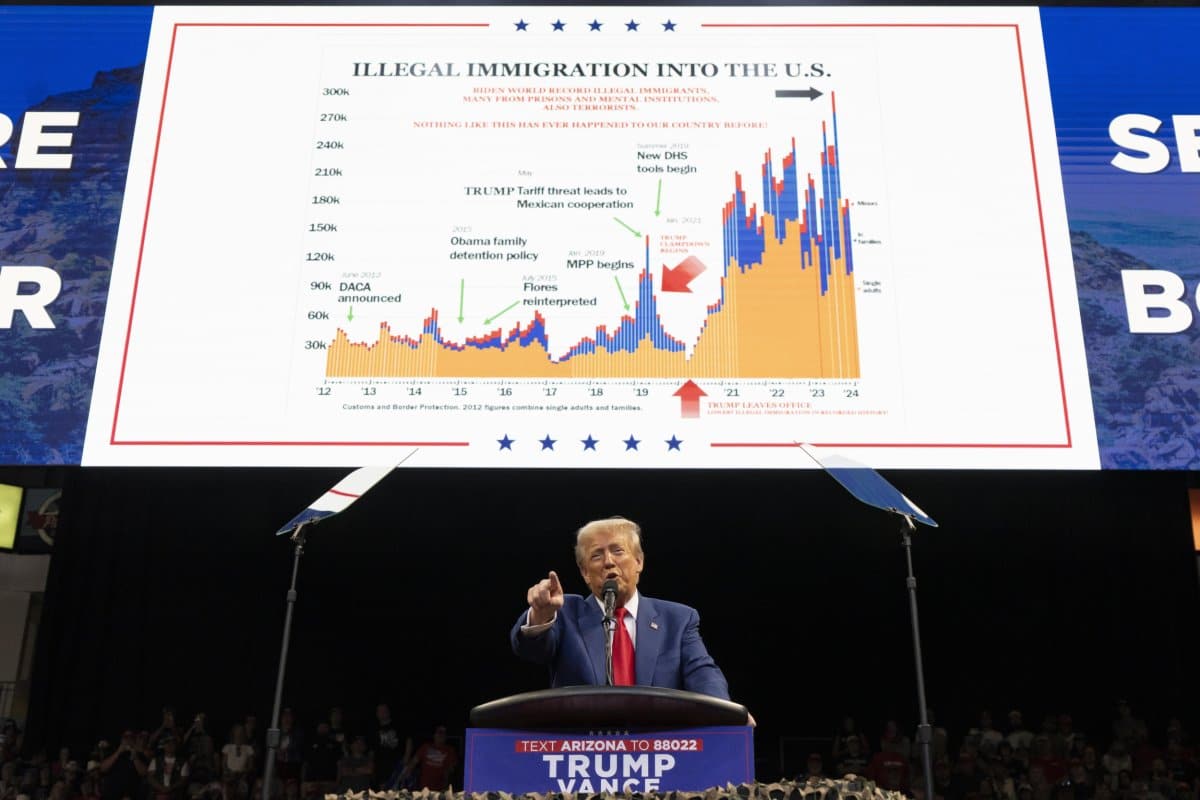Republicans are seeing inaccurate election coverage and are struggling to determine what is true in the lead-up to the 2024 vote.
November’s election is set to be historically tight, and it follows an eventful campaign cycle that included two thwarted attempts on former President Donald Trump‘s life, President Joe Biden withdrawing from the presidential race after the primaries and the quick launch of Vice President Kamala Harris‘ candidacy.
With less than a month until Election Day, new polls from the Pew Research Center showed that Americans, particularly those who identified as Republicans, were struggling with the issue of fake news. Americans have been inundated with information about the election, with six in ten saying they were worn out by the coverage, the nonpartisan think tank reported.
According to Pew, Republicans were more likely than Democrats to say they often saw inaccurate election coverage, and most Republicans said they found it difficult to determine what was true.
The survey of 9,680 U.S. adults, conducted between September 16 and 22, found that almost three-quarters of American adults reported seeing inaccurate news during this election cycle.
Of the Republicans surveyed, 61 percent said they found it difficult to determine what was true. Of the Democrats surveyed, 58 percent said they found it easy to determine what was true.

Former President Donald Trump, the Republican presidential nominee, at a campaign rally at Findlay Toyota Center in Prescott Valley, Arizona, on October 13. Republicans are seeing inaccurate election coverage and are struggling to determine what is true in the lead-up to the 2024 election.
Rebecca Noble/Getty Images
The think tank also reported that 51 percent of Republicans said they saw inaccurate news about the 2024 presidential election either extremely often or very often, with another 34 percent saying they saw inaccurate news somewhat often.
Among Democratic respondents, 24 percent said they saw inaccurate news about the 2024 presidential election extremely often or very often, and 38 percent said they saw it somewhat often.
Another 36 percent of Democrats said they saw inaccurate news about the 2024 presidential election either not at all or not too often, with 14 percent of Republicans reporting the same.
Newsweek has contacted the Democratic National Committee and the Republican National Committee for comment via email outside normal working hours.
One example of misinformation that spread widely this election cycle is the Springfield pet-eating hoax. During a presidential debate on September 10, Republican candidate Donald Trump repeated online assertions that Haitian migrants in Springfield, Ohio, were eating pets.
“They’re eating the dogs—the people that came in. They’re eating the cats. They’re eating the pets of the people that live there,” Trump said, though local officials had already debunked the claims.
However, Trump and his running mate, Ohio Senator JD Vance, continued to stand by the story.
In a subsequent lawsuit, the Haitian Bridge Alliance accused Trump and Vance of spreading “unrelenting lies” about Haitian immigrants. The organization wrote in the court filing, “Trump and Vance have knowingly spread a false and dangerous narrative by claiming that Springfield, Ohio’s Haitian community is criminally killing and eating neighbors’ dogs and cats and killing and eating geese.”
The Pew Research Center reported that seven in 10 Americans were closely following news about the candidates in November’s election, up from 58 percent in April and the highest it’s been this election cycle, indicating that Americans are watching the news more closely as the election draws nearer.
Do you have a story we should be covering? Do you have any questions about this story? Contact LiveNews@newsweek.com.










